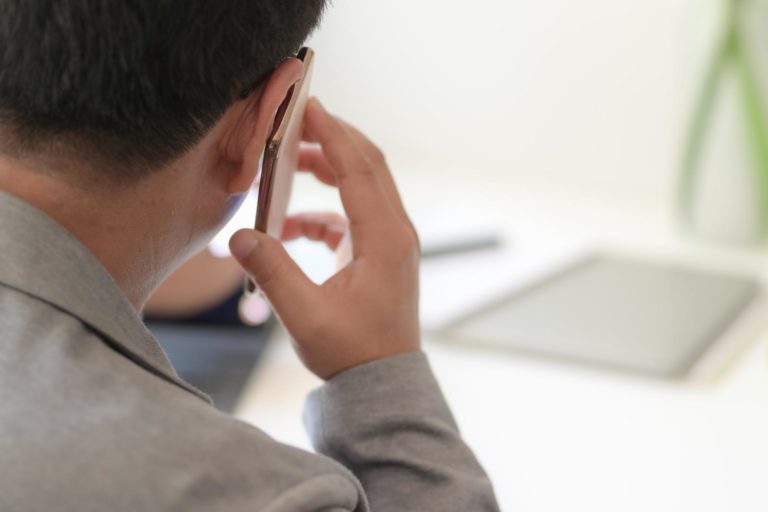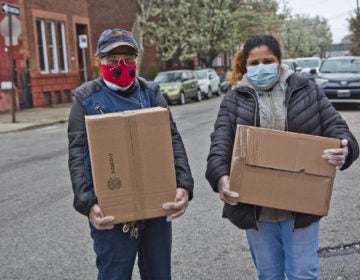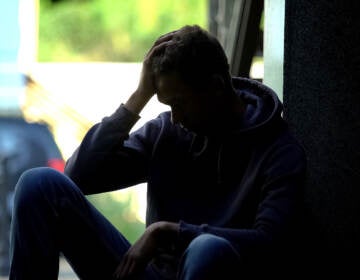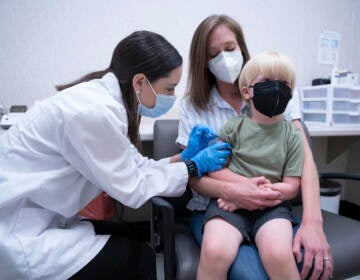Calls to Pa.’s child-abuse hotline fell sharply during first weeks of the coronavirus. Here’s why that’s bad news.
“Right now, we have a lot of invisible kids that are at great risk,” said Scott Hollander, executive director of KidsVoice, a Pittsburgh-based nonprofit.

(Bongkarn Thanyakij/Pexels)
This story originally appeared on Spotlight PA.
Spotlight PA is an independent, nonpartisan newsroom powered by The Philadelphia Inquirer in partnership with the Pittsburgh Post-Gazette and PennLive/Patriot-News. Sign up for our free weekly newsletter.
In the days after schools shut down statewide to slow the spread of the coronavirus, Pennsylvania’s 24-hour hotline for reporting child abuse and neglect experienced a sudden drop-off in calls.
But far from being a comforting statistic, child welfare advocates warn that it could reflect a more troubling trend, as the people who are most likely to spot and report suspected abuse are now confined to their homes and unable to keep their eyes on vulnerable children.
That’s happening at a time when families who were already struggling are further stressed by the sudden and dramatic fallout from the virus’ spread, including lost jobs and trouble affording basic necessities like food. Social distancing and staying home — both considered essential to avoid overwhelming hospitals with sick patients — only compound potentially volatile situations for vulnerable families.
“Right now, we have a lot of invisible kids that are at great risk,” said Scott Hollander, executive director of KidsVoice, a Pittsburgh-based nonprofit that represents nearly 3,000 children involved in the child welfare system. “Think about where [abuse and neglect] reports are coming from: schools, day-care providers, doctors seeing children on routine visits. None of these are happening right now.”
In the first few days after schools closed on March 13, state public welfare officials reported a reduction in calls to ChildLine, Pennsylvania’s hotline for reporting suspected child abuse and neglect. The hotline received 3,284 phone calls between March 11 and March 17, compared with 4,121 during the same week in February, according to data provided by the state Department of Human Services.
And in a call earlier this week with child welfare advocates, human services officials said that in the first three weeks of March, ChildLine had received just over 9,000 calls, compared with nearly 18,000 the previous month.
Department officials said they cannot provide more recent data because ChildLine’s employees are now teleworking.
“We do not have statistics on the number of incoming calls while staff are teleworking,” a spokesperson said. “However, we are beginning to compile statistics on calls answered by teleworking staff.”
Still, officials noted that since the first cases of COVID-19 were reported in early March, there has been no reduction in staffing levels overall for ChildLine, which in many instances serves as the first point of contact for reports of suspected neglect and abuse. The decisions of the hotline’s staffers determine whether a case gets referred for further investigation.
The staff also processes child-abuse clearances and FBI background checks for people who work or volunteer with children.
“What happens at ChildLine drives what happens next for kids and their safety,” said Cathleen Palm, founder and executive director of the Center for Children’s Justice in Berks County.
When they receive a call reporting abuse, ChildLine caseworkers search a statewide database to identify if anyone involved in the report — including the child, the child’s parent, or the alleged abuser — has ever been involved in a previous substantiated report or one that may currently be under investigation.
ChildLine workers then “triage” the situation and determine whether a case gets referred to county children and youth agencies or law enforcement for further investigation, Palm said. (Those agencies are considered essential and are working despite other shutdowns.)
Palm said the majority of calls into ChildLine come from so-called mandated reporters, such as school employees, day-care workers, and religious leaders. The unique danger posed by the coronavirus is that those people are no longer coming into daily or weekly contact with children.
Nearly 84% of the 46,617 reports made to ChildLine in 2018 came from mandated reporters, according to the most recent data on child protective services released by the Department of Human Services. School employees made the most calls by far among all mandated reporters.
Palm noted that the next two largest groups of mandated reporters are social service employees, many of whom are not engaging face-to-face with children, and employees in health-care facilities, who in many cases may be focused on COVID-19.
“This is a dangerous time for children,” Palm said.
 100% ESSENTIAL: Spotlight PA provides its journalism at no cost to newsrooms across the state as a public good to keep our communities informed and thriving. If you value this service, please give a gift today at spotlightpa.org/donate.
100% ESSENTIAL: Spotlight PA provides its journalism at no cost to newsrooms across the state as a public good to keep our communities informed and thriving. If you value this service, please give a gift today at spotlightpa.org/donate.
WHYY is your source for fact-based, in-depth journalism and information. As a nonprofit organization, we rely on financial support from readers like you. Please give today.




![CoronavirusPandemic_1024x512[1]](https://whyy.org/wp-content/uploads/2020/03/CoronavirusPandemic_1024x5121-300x150.jpg)


